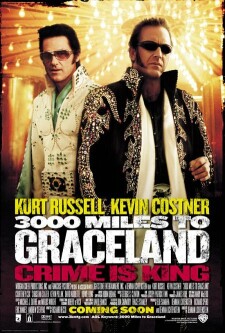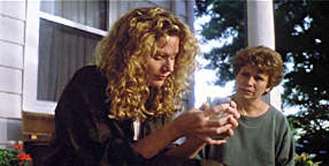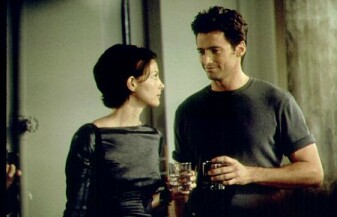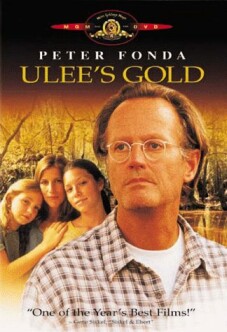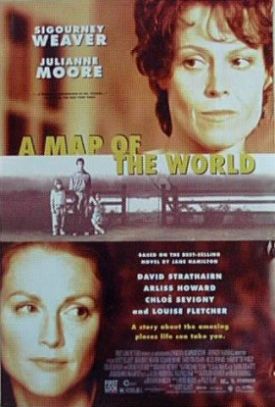Something’s Gotta Give
Every time I hear the term “sophisticated romantic comedy” used by a studio publicist to describe a movie these days my heart sinks a little. Oh dear. Someone’s going to speak a little French and someone’s going to be Hollywood’s idea of a writer or intellectual and everyone is going to wear fabulous clothes and be knowledgeable about food and wine. There may even be shots of the Eiffel Tower with snow falling. How I wish, usually, that there were less sophistication and more comedy. Nancy Meyers’s Something’s Got to Give has all these problems and another, even more serious one all its own. It is — how to put this delicately? — that watching Jack Nicholson and Diane Keaton together is like watching your parents making love.
Now I am myself more or less of their age bracket and all in favor of sex among the oldies, but let’s face it, film is a visual medium. Even old people like to see young and attractive people in love. It comes as a bit of a jolt when it’s people like themselves. Shouldn’t they be acting their age? But in Something’s Got to Give, the lovers’ being old is sort of essential to the plot, which has Miss Keaton’s daughter, played by Amanda Peet, bringing the ageing roué Harry, who is Nicholson playing himself as usual, to her mother’s place in the Hamptons for some guilt-free, uncommitted sex. Except that mom, a successful playwright called Erica Barry and her sister Zoe (Frances McDormand), a professor of women’s studies at Columbia, happen unexpectedly to be in residence. Naturally mom and the playboy meet cute and hate each other. Naturally, too, this presages their falling in love, which they proceed to do after the playboy suffers a heart attack and is left alone with mom in the beach house to recover.
It occurs to me that the parents — prim, moralistic, responsible, worried about money or what the neighbors will say — are an essential part of every love story. They act as the foil to the delicious irresponsibility that love signifies to young people, who are thus allowed to define themselves by a (usually) benign form of rebellion. But for the lovers to be also the parents, however much in keeping with current demographic trends that may be, is in Miss Peet’s words when she finds that her father is getting married to someone of approximately her own age, “beyond creepy.” Nor does it help that the romance is complicated by Harry’s tergiversation between the post heart-attack desire to turn his life around and his fear of doing just that. “I’m going to go back to being me, aren’t I?” he asks his doctor. Of course his hesitancy gives mom a chance to be heartbroken, to write a smash hit play based on their relationship and to have a delightful dalliance with the doctor, played by Keanu Reeves, before she gets back together with him. This is Nancy Meyers’s fantasy after all.
Only in Hollywood would a 60-something man falling for an “age-appropriate” woman count as high-concept, or a belated discovery that there is more to sexual attraction than the merely physical strike with the force of revelation. Perhaps, too, you will have heard elsewhere that people refuse to “commit” in order to protect themselves from hurt, that old dogs find it hard to learn new tricks or that serious illness can make people think of their lives more, well, seriously.
None of this would matter so much if the film weren’t, at 123 minutes, at least half an hour too long and the sophisticated romantic comedy were really as advertised. But the funniest moment comes with the sight of Jack Nicholson’s bare bottom through a hospital gown, while there is something less than sophistication in his charming Erica with psychobabble, informing her that she is “a tower of strength” who uses her strength “to separate yourself from everyone” — even though, it seems, she is “great when your defenses are down.”
To this bit of searching character analysis, Erica replies: “I can’t decide whether you hate me or you’re the only one who ever ‘got’ me” — which suggests that she really ought to get out more.
Finally, even the romance is called into question with Nicholson’s tender assurance to his new love: “Erica, you’re the funniest girl I ever had sex with.” Even the Eiffel Tower in the snow can’t quite make up for that line.
Discover more from James Bowman
Subscribe to get the latest posts to your email.



